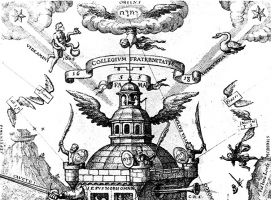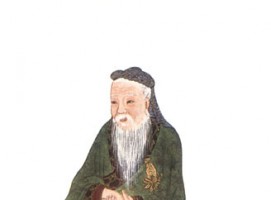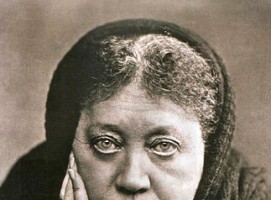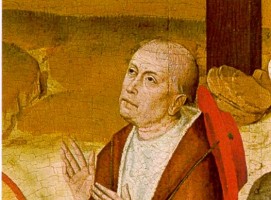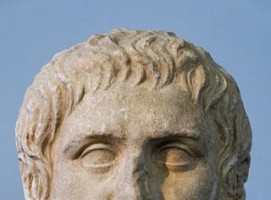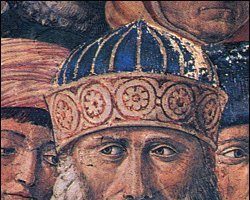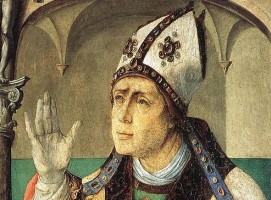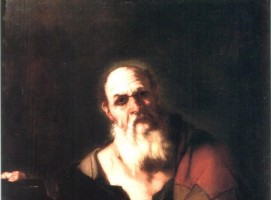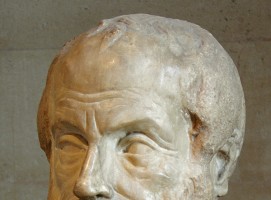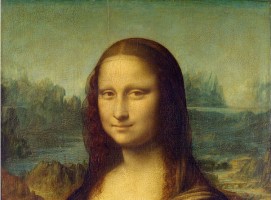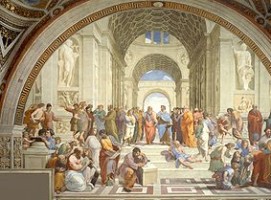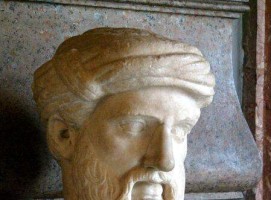Showing 60 articles
The Mysterious Fraternity of the Rosicrucians
Author: Julian ScottAugust 8, 2014
In 1614 and 1615, two ‘Rosicrucian Manifestos’ were published in Germany. They described the foundation of the “Fraternity of the Rosy Cross”, outlined its basic principles and invited learned men of good will to apply for membership and contribute to a “general and universal reformation of the whole wide world”. The first Manifesto, entitled “Fama [...]Confucius
Author: AnonymousAugust 8, 2014
The philosopher who has had most influence on the Chinese people is known in the history of thought by the name of K’ung-fu-tzu, or Master K’ung, which the Jesuit missionaries of Peking latinized to Confucius. According to tradition, K’ung Chung-ni, or K’ung Ch’iu was born in Ch’ü-fu in the State of Lu, on the 21st [...]Helena Petrovna Blavatsky
Author: AnonymousAugust 8, 2014
But to the public in general and the readers of the Secret Doctrine I may repeat what I have stated all along, and which I now clothe in the words of Montaigne: Gentlemen: “I have here made only a nosegay of culled flowers, and have brought nothing of my own but the string that ties [...]Nicholas of Cusa
Author: AnonymousAugust 8, 2014
Nicholas Cryfts – or Krebs – was born in Kues (Cusa), on the banks of the River Moselle, in the region of Trier, now Germany, in 1401. His father, Johan Cryfts, a rich ship owner, died in 1451 and his mother, Catherina Roemer, in 1427. His early education took place at the school of the [...]Plato
Author: AnonymousAugust 8, 2014
The son of Ariston and a descendant of King Codrus and Perictione, who was a descendant of the great lawgiver, Solon, he was born in Athens in 429/28 B.C. and died in 347 B.C. His real name was in fact Aristocles and Plato was a nickname that means “broad-shouldered”. It was apparently given to him [...]Plethon
Author: AnonymousAugust 8, 2014
He was born between 1355 and 1360 in Constantinople. Although we have no definite information about his family or origins, the various authors who have researched the subject believe that he was born into a well-to-do family, probably of an orthodox priestly origin, so it is logical to suppose that he received a complete education [...]Saint Augustine
Author: AnonymousAugust 8, 2014
Aurelius Augustinus was born in the city of Tagaste (Numidia), in the year 354 A.D. His mother, a devoted Christian later to be known as St. Monica, tried to instill the faith in him from an early age, which the young Augustine resisted, considering it to be intellectually confused. His family invested a large part [...]Socrates
Author: AnonymousAugust 8, 2014
The greatest of the philosophers was born in Alopeka, a town in Attica in the year 470 B.C. His father, Sophroniscus, was a sculptor and his mother, Phaenarete, a midwife – a profession to which Socrates often alluded, comparing it to his philosophical method, mayeutics (from the Greek maieuo, to cause to be born). He [...]Aristotle
Author: AnonymousAugust 7, 2014
We owe to the Greek historian Diogenes Laertius most of our information on the life and works of this philosopher, who, together with Socrates and Plato, symbolize Western philosophical inquiry. He was born in 384 B.C. in Stagira (Thrace) and died in Chalcis (Euboea) in 322 B.C. His father, Nicomachus, was physician to Amyntas, the [...]The Occult Philosophy in the English Renaissance
Author: Julian ScottAugust 5, 2014
The official history we learn at school or read in most books gives us only a partial view of reality and leaves out things that do not fit into the prevailing view. A case in point is the English Renaissance and its links with occultism. The standard history of that age tells us of the [...]Celebrating 2400 Years of Plato’s Academy
Author: Yaron BarzilayMay 13, 2014
The year 2013 marks 2,400 years since Plato established his Academy in Athens. Founded in 387BC, the Academy has continuously influenced humanity since inception, be it the Mediterranean Civilizations, numerous western philosophers including the renaissance men (who referred to Plato as a divine philosopher,) to our modern world of today, in which Plato’s teachings still [...]Pythagoras
Author: AnonymousMay 12, 2014
Although his exact origin is unknown, most authors, including Porphyry, agree that he was born and raised on the Ionian island of Samos, around 560 B.C. His father, Mnesarchus, was a “ring engraver” of Tyrrhenian origin, who did business with the Greeks and Phoenicians. His mother, Parthenis, was a descendant of Ancaeus, the founder of [...]